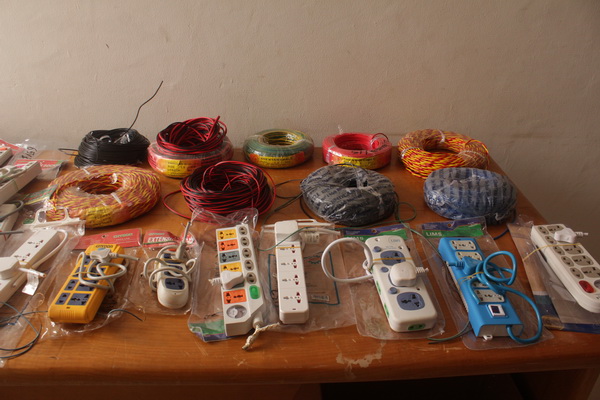The Uganda Bureau of Standards (UNBS) in a statement it released on Wednesday said the market surveillance operation it carried out at the Energy Centre in Kampala on November 14, led to the seizure of four tonnes of substandard electric products.
“The operation focused on the Energy Centre on Market Street because it had been identified as the main source of substandard electrical products on the market. Such operations will continue to other outlets around the country covering various products,” UNBS says in a statement.
According to the statement, UNBS some the 46 shops inspected had the substandard electrical products that were taken to its warehouse to aid with further investigations. “The business owners were summoned to UNBS CID Office for further investigations and possible prosecution,” says the statement.
“This market surveillance activity was informed by test reports of samples picked between July and September, 2018 that were submitted to UNBS laboratory for testing. From the test reports, it was established that about 80 per cent of the samples tested did not meet standards,” says the statement.
Section 3 (e) and (f) of the UNBS Act gives UNBS the mandate to enforce standards in the protection of the public against harmful ingredients, dangerous components, shoddy material and poor performance while Section 21 (i) prohibits the sell and distribution of substandard products.
“We have noted that substandard products are brought into the country by unscrupulous importers who often use many tricks to circumvent regulatory requirements by: Smuggling such products through un-gazzeted entry points; mis-declaration of cargo by using wrong HS codes; concealment of substandard products so as to avoid detection during verification,” says the statement.
The statement says that whereas UNBS has made significant strides in ensuring compliance with standards, noncompliance continues to pose a challenge. The agency says a recent study it commissioned established that the prevalence of substandard products among the items sampled stood at 54 per cent down from 73 per cent reported in 2013.





